Mini-Biography:
Allen Holubar wurde unter dem Namen Allen Joseph Holubar am 03. August 1889 in San Francisco, California, USA geboren. Allen Holubar war ein amerikanischer Regisseur, Autor, Schauspieler, bekannt durch The Heart of Humanity (1918), Sirens of the Sea (1917), Once to every woman (1920), 1913 entstand sein erster genannter Film. Er war verheiratet mit Dorothy Phillips (1912-1923). Allen Holubar starb am 20. November, 1923 in Los Angeles, California, USA. Sein letzter bekannter Film datiert 1924.
Biographische Notizen : Dies ist die aktuelle Version der Biographie
Datum 13. Juli 2019 / Konstanz
letzte Aktualisierung: 24. August 2019
Book about actor and director Allen Holubar
Introduction
He may have passed the peak of his career when sudden death ended the life of Allen Holubar in 1923 - Holubar was not even thirtyfive years old, when he passed away. He had directed at least thirty-four pictures in the years 1916 to 1923, among them seventeen full length features in the length of five thousand feet and more, and his greatest successes were five years away. He just had signed a three picture deal with the Metro Corporation and was directing the scenes of the Battle at Franklin in Tennessee, when he caught the typhoid fever, that was also the cause of death of many soldiers forty years ago. He was Carl Laemmle's drawing card Number One when Universal expanded agressivly his shares in the domestic US Film Market. But he quarreled with Laemmle, their partnership broke up and Holubar became 'independent'.
There were talks about an Italian partnership with Gabriele d'Annunzio, however we could not find any details in the d'Annunzio Archives in Gardone. He was (probably) happily married to actress Dorothy Phillips, his First Lady in most of his feature-length motion pictures. And Dorothy Phillips had her own career beside her husband's pictures, both were a prominent couple in the Hollywood comunity.
Holubar's name comes up in relation with other important events in Hollywood's Cinema at the end of the second decade: His and P.A. Powers influence re-opened Universal's doors to Rex Ingram in 1919; with Ingram, Holubar was in the Advisory Council of Palmer Photoplays; with Ingram he was under an exclusive Metro contract; Holubar directed Rudolph Valentino in "Once to Every Woman," and he may have been given the decisive hints to cast Valentino for Ingram's "Four Horsemen of the Apocalypse."
And like other names in early Hollywood Cinema, Holubar's name disappeared with his death, his unfinished picture was never completed. Although at least seven of his feature length pictures survive, none of them has been restored. "The Heart of Humanity" has a certain fame for its scene showing von Stroheim as brutal Hun with the crying baby, but the film survives for the audience only in a dreadful DVD-version. The print of "The Right to Happiness" with Dorothy Phillips in the role of the twin sisters, shown in Pordenone in 2017, is not in a much better state. No study to restore Holubars movies has been undertaken.
Kevin Brownlow told us, that he tried to interview Dorothy Phillips for his book The Parade's Gone By ... (1968) , but she was not at all interested to talk about herself or her former husband. So this leaves us just with what was published during Holubar's lifespan. Except for some references to "The Heart of Humanity," there are only very few lines to be found on Allen Holubar. This annotated filmography, to our knowledge, is the first publication about this director, actor and producer to embrace his whole career from his early acting experiences in San Francisco to his last unfinished film about the Battle at Franklin in Tennessee.
No doubt, Holubar was not Hollywood's greatest director, not even for the late Teens or early Twenties, but he was well respected and successful in those years, and his moving pictures attracted crowds and experts. Or, with the words of Kevin Brownlow: In terms of cinematic action, Allen Holubar was probably better than Griffith...*)
Illustrations and stills are from the Giornate del Cinema Muto Pordenone, period magazines like „Moving Picture Weekly,“ „Motion Picture News,“ etc. and the author's collection.
We would like to thank all those who helped us with documents and information to complete as much as possible an incomplete homage to Allen Holubar and to restore for him a place outside of oblivion.
Vernate, August 31, 2019
Leonhard H. GmĂĽr
*) (Kevin Brownlow, Hollywood, The Pioniers, London 1979, pg 7)
Biographical Notes
There is conflicting information on the date of birth of Allen Holubar: according to the Blue Book published in 1920, he was born August 3, 1890, in San Francisco. Most other sources give an earlier date August 3, 1889, and as per IMDb Holubar was born 1888. The short biographical information on IMDb (by Michael Allen Holubar) has some more details. Allen's father, Constantin Josef Holubar (1853-d.), immigrated from Bohemia in 1875 and had married in 1886 a Scots immigrant, Margaret Allen. They settled in San Francisco, and Allen was born at 44 Caselli Avenue, the oldest son of five children. At early age he started working in local theatres and eventually began an acting career first at the Alcazar & Alhambra Theatres in San Francisco under Fred Belasco. Allen was sixteen years old.
"I was only sixteen at the time, and some way or other I had managed to get a speaking part in 'The Lady of Lyons,' with the famous old Alcazar Stock Co. I don't know how I ever hypnotized them into giving me the chance, but the first night was the most important in my life, and you may be sure that I had let every kid in my neighborhood know of the honor which had been conferred upon me. They were all out in force in the gallery, having promised to give me their support. And they certainly kept their word. I was the messenger, who brings 'Pauline' a note from 'Claude.' She answers by ordering the messenger a beating. He then rushes back to 'Claude,' and tells him that he was received with blows. This was the extent of my part, and I was determined to do or die in it. Well, I nearly died. I stood in the wings waiting for my cue, my teeth chattering and my knees feeling as if some one had taken the bones out and put in jelly instead. At last my cue came. I rushed on the stage, prepared to deliver my speech, when a familiar voice in the gallery bawled out, 'There's Al! Hullo, Al!'
"The audience caught on and began to howl with laughter. If I had been able to speak my lines, I should not have been heard. But I was paralyzed. I could not even turn and leave the stage, though simply longing to crawl into a hole and pull it in after me. Finally, 'Claude,' to get me off the scene, I suppose, asked, "Well, what did she do to you?' By this time I was completely rattled. 'Nothing,' I blurted out, and fairly ran for the nearest exit. As long as I live I never expect to get another round of applause like that which greeted my disappearance...." (The Moving Picture Weekly, May 12, 1917, pg 15)
He subsequently appeared in the East in a prominent role with Blanche Bates in the David Belasco production of "The Girl of the Golden West," followed then William A. Brady's presentation of "The Man of the Hour," a play by George Broadhurst – later on turned into a picture by Maurice Tourneur (1914), Henry W. Savage's "Everywoman," and so on. Holubar was with the Belasco stock in Los Angeles, Olympic stock Cincinnati, Pickwick Stock San Diego, Auditorium stock Spokane, Mozart Theatre Stock Elmira N.Y. and with T. Daniel Frawley's company of Seattle and Portland. For one season he was Berta Kalich's support in vaudeville.
1908
San Diego, January 22 – Pickwick Theatre (S.A. Palmer, mgr.): Week January 20, In the Bishop's Carriage is proven one of the best drawing cards the Pickwick Stock Company has ever put before the public. Allen Holubet, the new leading man, is certainly creating a favorable impression. The role of Nance Olden is played by Myrtle Vane. Miss Vane plays her scenes with Latimer (Allen Holuber) and Tom Dorgan (Fred Gilbert) in an excellent manner. (...) (The San Francisco Dramatic Review, January 25, 1908, pg 7)
The San Diego Sun reported on Allen Holuber from the Pickwick Stock early 1908: „In the Bishop's Carriage affords Allen Holuber, the new leading man of the Pickwick Stock Company, a first-class chance to demonstrate his worth and if he overlooked any opportunity last evening, it was beyond the perception of his interested auditors. Mr. Holuber's work last evening demonstrated him to be one of the best leading men that has ever appeared with a stock company in San Diego, and there is not the slightest doubt that he will be rapidly become a warm favorite with all the theatregoers of this city. He is at all times perfectly natural, a quality which has been somewhat lacking in Pickwick leading men of the past, and an actor in every sense of the word, with a voice that is extremely melodious and pleasing. He shows a careful study of the part and from his showing last night much may be expected of him in the future.“ (quoted as Ad in The San Francisco Dramatic Review, February 15, 1908, pg 12)
The Dancing Girl not only affords a great opportunity for the actors of the Pickwick Stock Company to show their ability, but also affords a great chance for displaying some magnificent scenery, which the certainly do. (...) Allen Holuber as Valentine Danecourt, the Duke of Guisebury, does some excellent work. He continues to improve as the play progresses, and in the third act, when he contemplates self-destruction and colly sets about to prepare for the deed, he never fails to hold the undivided attention of his auditors. Although Mr. Holuber has been here only a few weeks, he has succeeded in making a great reputation for himself with the Pickwick audiences. (The San Francisco Dramatic Review, March 7, 1908)
Comedy again holds the boards at the Pickwick this week and from the manner in which the audience received Turned Up it would appear that the bill will prove an extremely popular one. Myrtle Vane appears to excellent advantage as Tabina Medway. Allen Holuber, as George Medway, easily comes up to expectations. This is the seond time Mr. Holuber has been in comidies and the easy manner in which he handles his comedy shows that he is an actor of ability. (...) (The San Francisco Dramatic Review, March 21, 1908, pg 7)
One of the most pretentious productions that has yet been attempted by any stock company in San Diego, and probably the heaviest that has been put on by the Pickwick Stock Company, is The Pit, which was last evening given its first presentation. As Laura Dearborn, Myrtle Vane scores one of the triumphs of her engagement. It is extrenely doubtful if Miss Vanei has ever done anything better. (...) Great credit should be given to Millar Bacon for an effective bit of acting in the fourth act, when he appears as Hargus, a ruined and broken down old man, who has lost his all in the wheat pit. (...) One of the hits of the bill was made by Allen Holuber (...) (The San Francisco Dramatic Review, March 28, 1908, pg 7)
Comedy is again holding the boards at the Pickwick Theatre this week. What Happened to Jones was given its first presentation last evening by the stock company. It was received with great favor by the large audience. (...) Myrtle Vane has the part of Marjorie, and she handles the part in clever style. Allen Holuber provides plenty of amusement as the real Bishop of Ballarat (...) (The San Francisco Dramatic Review, April 4, 1908, pg 6)
All the old-time characters dear to the heart of the lover of pastoral drama are represented in The Missourians, and the authors have drawn copiously from the store of country lore for their action and lines. Allen Holuber takes the part of a fiercy looking but big-hearted saloon-keeper, who finally thwarts the designs of the villain to prcure all the Widow Benton's property (...) This is the last week of stock for this season. (The San Francisco Dramatic Review, April 25, 1908, pg 6)
This is the farewell wekk of the Pickwick Stock Company, and for its adieu the organization is being seen in a well-known drama, The Senator's Daughter. It is a considerably different play from The Mussourians, last week's bill. Allen Holuber is doing some fine work in the role of Gordon Stetson. Myrtle Vane is again doing some notable work this week in the role of Lucia Stetson, the Senator's daughter. Miss Vane's emotional work is never overdone, and her scenes, both with her husband and the Marquis, are handled in a truly artistic manner. Millar Bacon, as Lord „Harry“ Beresford, is every inch the scion of English nobility.Mazie Martell, a new member of the company, also to play one of the leading roles with the musical comedies, is fine. Miss Martell gained several pretty compliments, likewise hearty applause, from the way she sang That's What the Rose Told to Me. (The San Francisco Dramatic Review, May 2, 1908, pg 6)
Holubar left San Diego mid of 1908 for the Jessie Shirley Company in Spokane: Allen Holuber bas joined the Jessie Shirley company in Spokane, replacing George McQuarrie. (The San Francisco Dramatic Review, June 6, 1908, pg 5)
Spokane, June 28 – Chimmie Fadden was the bill presented by the Jessie Shirley Company at the Auditorium the weel of June 21. Allen J. Holuber playing the title role. Miss Shirley appeared in a soubrette part, as Hortense the French maid, gibing one of her most captivating and delightful characterizations. (...) (The San Francisco Dramatic Review, July 11, 1908, pg 6)
Crowded houses greeted the re-opening of the Auditorium Theatre August 16th (...) Jessie Shirley and her excellent company, (...) splendid production of Alice of Old Vincennes (...) Miss Shirley in the title role gave one of the most remarkable portrayals of her long and brilliant engagement. (..) Allen Holuber as John Beverly did perhaps the strongest work in which he has been seen here. (...) (The San Francisco Dramatic Review, August 29, 1908, pg 6)
The Jessie Shirley Company scored a decided hit at the Auditorium, week of August 23, in All on Account of Eliza, a comedy of the rural type, in which the majority of the cast appeared in excentric character roles. (...) Allen Holuber did capital work in the eccentric comedy part of Franz Hochstuhl, retired cattle dealer and president of the school-board. His make-up and dialect were exceptionally clever. (The San Francisco Dramatic Review, September 12, 1908, pg 6)
Tacoma, Washington (...) After many weeks of preparation the McRae Players at the Star Theatre produced the long-promised When Knighthood Was in Flower, and to say that the company scored a success is stating it mildly. (...) Margaret Oswald as Mary Tudor created a sensation. Always excelent in her work, she surpassed herself. Sharing honors with her was Allen Holuber as Charles Brandon, the lover. His work was pleasing and his great versatility shown, so radically different was it from his role in The Devil last week. (The San Francisco Dramatic Review, October 10, 1908, pg 9)
(...) The bill, Dorothy Vernon of Haddon Hall, gives Miss Oswald the chance to portray the sort of role in which she is at her best, and to display some extremely handsome gowns. Mr. Holuber was good as Sir John (...) (The San Francisco Dramatic Review, December 19, 1908, pg 10)
1909
(...) At the opening performance of Quo Vadis at the Star Theatre, Charles B. Hanford occupied a box and addressed the audience. That Tacomans appreciated the McRae players in Quo Vadis was evidenced by the big business that prevailed all week. The piece was gorgeously staged and costumed and splendidly given. Mr. McRae was fine in the role of Marcus Vinicius, having played the part when Quo Vadis was first produced on the road. Mr. Holuber as Petronius gave a successful rendition of the part. (...) (The San Francisco Dramatic Review, March 27, 1909, pg 6)
1912
Olympic (Charles Dorner. mgr.) — The Olympic Players are to begin their second week, 1. by offering "The Charity Ball." The new stock company's premiere was "Arizona." and Adra Ainslee [1874 - January 13, 1963] made her debut here in the role of Bonita with Allen J. Holubar as Lieut. Denton; Winfield De Long as the villainous Hodgman; Eugene La Roae (??) as Canby, Fred Hargrave in the comedy role of Dr. Fanton, and Harry Wilgus as Tony. [Names partly illegible] (The New York Clipper, December 7, 1912, pg 20)
The Olympic Players [Cincinnati] were seen last week in a revival of Daudet's Sapho, and presented it in a fairly good manner. The role of Sapho was handled by Minnie Remmally, and that of Jean by Allan Holubar. Harry Wilgus was cast as Uncle Cesaire, Robert Dalton as Caoudal, Winfield DeLong as Flamant, Fred Hargraves as Hettens and Millard Vincent as Dechelette. (The Billboard, December 21, 1912, pg 43)
1913
In 1913 Holubar got interested in motion pictures and appeared in some Essanay productions, whose directors are mostly unknown today. Theodore Warton was one of them, he directed Holubar in the adventure-drama "Into the North", a two-reeler, where Holubar played to part of a bank president. The part of a young Indian girl was in the hands of Mary Gwendolyn Strible, better known under the name Dorothy Phillips, or since 1912 Mrs. Allen Holubar. Mrs. Phillips was not only Allen Holubar's leading lady in life, but also in most of his motion pictures, starred or directed by Holubar.
«Allen Holubar hails from San Francisco, but claims the entire United States as his tramping ground. At present, however, he seems to be permanently located at Universal City, where he has finished the big role of Princer Daker (after Captain Nemo), in the "Twenty Thousand Leages Under the Sea" picture directed by Stewart Paton. The making of this picture has taken fourteen months and took Mr. Holubar from he East into the West Indies and just recently out to Universal City. Since coming to "U" City he has found time to write, direct and appear in several one-reel pictures, amonng the being "Any Youth," in which Dorothy Phillips played the lead. While "The Health Road," "The Nemesis" and "Ashes of Remembrances" are other recent one-reel pictures directed by Mr. Holubar. Mr. Holubar began his theatrical work as leading man for T. Daniel Frawley in San Francisco. In the East he had a prominent role in "The Girl of the Golden West," as produced by David Belasco, and also in the William Brady production, "The Man of the Hour." He also was prominent in the Savage production "Everywoman," and two years ago became a member of the Eastern Universal. Mr. Holubar intends to make the coast his home indefinitely.» (The New York Dramatic Mirror, August 5, 1916, pg 34)
1915
«Alien J. Holubar, well known as a leading man in the legitimate, and formerly lead with Essanay, is now playing with the Imp-Universal under the direction of Stuart Paton.» (The Moving Picture World, January 2, 1915, pg 94)
«Princess Hassan of Egypt. Neal Burns, Hank Mann and Alan Holubar have been added to the growing list of leading players of the Universal. » (The Moving Picture World, March 6, 1915, pg 1456)
1916
«Another writer of the day - whose efforts will be filmed by the Universal, is Thomas Hardy, managing editor of Snappy Stories, whose first contribution, "Behind the Curtain," is now being made by Henry Otto, with Alan Holubar as the star, supported by a cast of other favorites. - (...) Not wishing to remain idle, Mr. Otto directed Dorothy Phillips and Allen Holubar in "Behind the Curtain," a one-reel drama which Mr. Otto completed in two days.» (Motion Picture News, February 19, 1916, pg 990)
Julius Stern Recommends List of Universal Pictures - Company Triples Scenario Staff Since Opening Studios at Universal Heights, New Jersey, and Increases Acting Staff — Subjects Show Marked Improvement
WITH a dozen directors at work on the stage, Universal Heights, New Jersey, is today in point of footage produced and number of directors one of the most active of all Eastern studios.
The staff of directors, under the general direction of Producing Manager Julius Stern, comprises Ben Wilson, Lucius Henderson, Harry C. Myers, Henry Otto, Stuart Paton, Edwin Stevens, W. J. Kelly, Robert Hill, William Garwood, Allan Holubar, Matt Moore and Rex Ingram.
"The improvement in Eastern Universal pictures upon our moving into the new studios," said Manager Stern, "was apparent almost with the first picture taken there. Lighting, settings, photography — there has been no question about the improvement. (The Motion Picture News, March 4, 1916, page 1313)
«Henry Otto, who directed the Bluebird photoplay "Undine," was transferred to the Universal studios at Universal Heights, N. J., to direct King Baggot, but as he had to wait two weeks before he could start in, he produced several one-reelers to keep his hand in trim.
His first effort was "Behind the Curtain," a drama written by Robert Thomas Hardy, managing editor of Snappy Stories, in which Dorothy Phillips and Alan Holubar were featured.
This marked the return of Mr. Holubar on the program releases of the Universal, as he is now taking the leading role in the new Williamson submarine pictures, on which he has been engaged the past seven months, and will be tied down with them for several months more.» (Motion Picture News, March 18, 1916, pg 1607)
«(...) And just to make the day's [ May 23, 1916] program an A-l tip-topper no less a personage than Bernard McFadden, of physical culture fame, will appear with Allen Holubar in a strong-arm light comedy, "The Health Road," which will have the brand burned into it. This release is an unusual feature and arrangements have been made to show it in gymnasiums and Y. M. C. A. auditoriums all over the country where Mr. McFadden is known.» [Moving Picture World, May 20, 1916, pg 1344)
«Allen Holubar, Universal director of the eastern studios, has been transferred to " U " City, and last week took up the making of the first subject here, a one reel picture entitled " Any Youth." Director Holubar was accompanied by Dorothy Phillips who has been the star of his company in the east. " Any Youth " is of an allegorical nature which deals with the conflict between the better and baser self of the average human being. Holubar, Hector Sarno and Dorothy Phillips are the principals.» (Motion Picture News, June 3, 1916, pg 3391)
Early Summer of 1916 Universal's Boss Carl Laemmle decided to close down most of his company's activities in the East and to concentrate the production in the new expanding Universal City in Burbank. Reducing the overhead costs may have been one of the main reasons, but also enforcing control over the production units that had enjoyed a rather liberal regime in Forth Lee was a good reason for this decision. Some minor production units remained in the East, but by now the production site on the Hudson was rapidly approaching his downfall. Allen Holubar was among those leaving new the foggy Eastern cpats for the sunny Californian HQ's.
Removal of 'U'' Studios to West Definitely Decided IT has now been definitely decided to transfer all the eastern producing companies of Universal to the west and hereafter all pictures of the company, with the exception of a very small minority, calling for a New York City atmosphere, will be made at Universal City, Cal. President Carl Laemmle formally announced this plan last week. (...) It is computed that $8,000 a week will be saved by the shift. Heretofore the expenses of the Fort Lee, N. J., plant have totaled $12,000 a week. At Universal City, where all the overhead expense is concentrated, the same companies may work with the comparatively small expenditure of $4,000 for the same length of time. (...) Some of the eastern producing companies are already on their way to the coast. Director Matt Moore's company, headed by Jane Gail and himself, left on Monday, May 29 ; Director Rex Ingram and his company left the Saturday before, while Stuart Paton with a company headed by Dorothy Phillips and Alan Holubar, are already at work at Universal City. (...) (Motion Picture News, June 10, 1916, pg 3585)
«One of the first to arrive was Director Stuart Paton, with his leading man, Allen Holubar, the leading lady, Jane Gail, Dorothy Phillips, William De Grasse, M. F. Murphy, assistant director, Joseph Girrard and William Welch. Later arrivals include Director William Carwood, Director David LeBrandt, Ben Wilson, Irene Hunt, Edith Roberts, Florence Roberts, Howard Crampton, Lillian Concord, Gertrude Cameron and Hobart Henley. » (Motography, Vol. XVI, N° 5)
«Allen Holubar, who has been appearing in a star part of the ten-reel subject, “Twenty Thousand Leagues Under the Sea,” has been placed in charge of a company and will direct Flora Parker De Haven. The first picture to be made will be “ The Little Dream Child,” in which Charles Cummings plays the male lead.» (Motion Picture News, September 9, 1916, pg 1541)
«“Ashes of Remembrance,” a Rex drama written and produced by Allen Holubar, will be released on October 1 with Allan Holubar and Betty Schade in the principal roles. Paul Byron, Helen Leslie and J. F. Evers appear in support of Holubar and Miss Schade.» (Motion Picture News, September 30, 1916, pg 2020)
«Allen Holubar, who was assigned to filming the three-reel subject “A Gentleman and a Soldier,” from the story of the same title by Robert H. Davis, was advised when settings were ready for the production, that error had been made with respect to rights on the story. He secured permission to use the settings and people assigned to him, and in thirty minutes had a synopsis written, and began making “ A Taint of Fear,” without working script. This was completed on schedule time, and he is now busy with “ The Old Toy Maker,” a decided character sketch, in which he plays the featured part.» (Motion Picture News, October 14, 1916, pg 2370)
A gentleman crook story which ends with the expose of a wager of a popular clubman to play the part of Raffles at a big social function, is being filmed under the title “The Shadow” by Allen Holubar, who plays the gentleman crook. The wager is to the effect that he shall take anything he gets his hands on, and in the end he even takes the sweetheart of the clubman with whom he made the wager. The photoplay gets its title from the fact that another clubman follows to see that he carries out the program. Harry Carter is the shadow and Neva Gerber the girl. (Motion Picture News, October 14, 1916, pg 2372)
Director Allen Holubar has completed his character sketch two-reel picture, “The Old Toy-Maker,” in which he takes the leading role, that of a German who came to America. His wife and child who followed later, were lost at sea. He made a doll to resemble, as nearly as he could remember, his little daughter, and he comes to worship this, especially in his dreams. This makes possible a number of fade-ins, which show a story of the heart throb type. (Motion Picture News, October 21, 1916, pg 2528) Allen Holubar is directing the production of a two or three-reel subject which has a peculiar plot. A good cast has been given Mr. Holubar for this picture, the title of which is “Stronger Than Steel.” (Motion Picture News, October 28, 1916, pg 2679)
«"Leonie's Daughter" nearly has been completed three reels bv Director Allen T. Holubar at Universal City.» (Motography, December 16, 1916, pg 1337)
«A beautiful Persian picture is to be filmed by Allen Holubar, director of artistic productions at Universal City. It is an original story by Grace Helen Bailey of the Universal scenario staff, who has been engaged in its preparation for the past three months. In addition to directing the picture Holubar will enact the leading role of the play, which is entitled "The Broken Bowl."» (The Moving Picture World, December 30, 1916, pg 1950)
«Allen J. Holubar is directing and playing the leading role in "The Little Girl from over There," at Universal City.» (Motography, December 30, 1916, pg 1430)
1917
1918
1919
«Holubar Ill. Allen Holubar, producer of "The Heart of Humanity" has returned to Universal City, and is now confined to his home because of a severe attack of influenza.» (Wid's Film Daily, January 8, 1919)
«Harry Carey now has the "flu." Allen Holubar is improved and Lyons and Moran are around again.» (Wid's Film daily, January 11, 1919) - Los Angeles, Jan. 22, Dorothy Phillips, Allan Holubar and Gloria Swanson are critically ill of influenza. Miss Phillips and Mr. Holubar were stricken while en route from New York. (Variety, January 24, 1919, pg 49)
«Dorothy Phillips was stricken with the "flu" while nursing friend husband, Al Holubar, on their return from New York. Mr. Holubar is now out of danger, but considerable apprehension is felt for his charming wife. (Wid's Film Daily, January 123, 1919) Dorothy Phillips and Alan Holubar were to have spent a day or so in Kansas City on their way back to the West coast, but on account of Mr. Holubar's illness they only stayed a few hours. (The Motion Picture News, February 1, 1919, pg 688)
Allen J. Holubar, who directed Universal's great success, " The Heart of Humanity,' has started work on a new picture with Dorothty Phillips as the star. It is a society drama, the title of which has not been announced. Some of the people who will appear in the cast are Robert Anderson, William H. Stowell. Mr. Holubar says the new picture will be produced on the same pretentious scale as that represented in " The Heart of Humanity." (The Motion Picture News, March 15, 1919, pg 1668)
A. Holubar in his expense account itemized cigars during the writing of scenario $105, claiming the twenty-five he smoked each day for fourteen days, was the source of inspiration, and should be paid for by the company. Our congratulations for getting away with it, Allen. (The Motion Picture News, March 22, 1919, pg 1837)
Dorothy Phillips Renews Contract Dorothy Phillips has signed a two years contract with Universal. This binds the star to "U" until February 1, 1921. Most of her work will be under the direction of Allan (sic!) Holubar. (Wid's Film Daily, March 28, 1919, pg 1)
After four weeks preparatory work Allen Holubar began the filming of the coming Dorothy Phillips release, " The Light,' with William Stowell and Robert Anderson in the principal roles of the supporting cast. It is expected that at least six week; will be required for the filming of this play. (The Motion Picture News, April 5, 1919, pg 2194)
MISS DOROTHY PHILLIPS and Director Allen Holubar were in San Diego Sunday, April 6th, and made a public appearance at the Plaza theatre in connection with the opening of their film, " The Heart of Humanity," on that day. The subject is booked there for a week's run, and it is expected exceptional business will result. (The Motion Picture News, April 26, 1919, pg 5)
Only a few more days' work remains before the completion of the latest Dorothy Phillips production, " The Right to Happiness," which is being staged under the direction of Allen Holubar. In this picture Miss Phillips appears in a double role with William Stowell opposite and a supporting cast including Robert Andersen, Hector Sarno, Winter Hall, Henry Barrows, Margaret Mann, Stanhope Wheatcroft and Alma Bennett. (The Motion Picture News, May 24, 1919, pg 3480)
Allen Holubar plans to complete the filming of " The Right to Happiness," starring Dorothy Phillips within the next ten days. During the present week he used almost 1,000 extras every day for some of the big scenes for this play. (The Motion Picture News, May 31, 1919, pg 3639)
Owing to an error the credit for the direction of " Destiny," Dorothy Phillips' new Universal super-production, was given to Allen Holubar. Universal announces that Rollin Sturgeon was the director of the super-production.' (The Motion Picture News, June 14, 1919, pg 3953)
«Allen Holubar is making preparations to begin production of 'Ambition' which will star Dorothy Phillip. Holubar is also the author of the story.» (Motion Picture News, August 1919, pg 1475)
«Other activities of Universal City include the start next week of the feature 'Ambition,' which is to be Dorothy Phillip's next cinedramatic vehicle. Allen Holubar will again direct Miss Phillips.» (Motion Picture News, August 30, 1919, pg 1831)
Holubar Starts Directing 'Ambition' After personally supervising the world premier of 'The Right to Happiness,' his first big super-production since 'The Heart of Humanity,' which took place recently at the California theatre, Los Angeles' newest and largest picture playhouse, Allen Holubar is now preparing to start immediately upon 'Ambition,' a new feature drama with Dorothy Phillips as the star. Miss Phillips will be seen as a country girl who is fired with ambitions to become the greatest opera singer of the age.» (Motion Picture News, August 30, 1919, pg 1846)
«Holubar with Zukor? (By Wire to Wid's Daily) Hollywood - Allen Holubar claims that Universal has violated its contract with him. He is now negotiating an independent Unit. It is reported here that he will produce for Adolph Zukor as an independent producer. If Holubar leaves Universal, Dorothy Phillips, his wife, will go with him. - Universal claims Holubar for income to come - Famous Players knew nothing of Holubar report yesterday. » (Wid's Film Daily, October 24, 1919, pg 1)
Allen Holubar is reducing 80,000 feet of negative to an eight-reel feature, which will be released as "Ambition." (The Motion Picture News, December 6, 1919, pg 4122)
Holubar breaks with Universal
Allen Holubar is reported to have had a serious falling out with the Universal, th upshop of which was, according to the Los Angeles Times, that Holubar declared he would no longer produce for Carl Laemmle and, inasmuch as Dorothy Phillipŝ contract reads she is to be directed by Holubar exclusively, she, too, would see, scheduled to go. However, it is known that Holubar and Miss Phillips hold contracts that have a year yet to run, which complicates matters a bit - may be. (Variety, October 17, 1919, pg 25)
Dorothy Phillips Ou of U. Los Angeles, December 20, 1919 Dorothy Phillips and her director, Allen Holubar, are leaving the Universal forces this week, though the U alleges a contract, unexpired, with each. (Variety, December 19, 1919, pg 222)
«Dorothy Phillips and Holubar Leave "U" (By Wire to Exhibitors Herald) Los Angeles, California - Allen Holubar, who has been directing for Universal for some time, will leave that company as soon as he completes cutting 'George Canary' [i.e. 'Ambition'] his last picture. Dorothy Phillips who in private life is Mrs. Holubar, has already left Universal and it is said litigation is now pending over their contracts, Mr. Holubar claiming that certain advertising clauses in the same were not live up to.» (Exhibitors Herald, January 3, 1920, pg 46) - «Carl Laemmle, president of the Universal Film Mfg. Co., is here for a flying visit. He came to try to patch up the Phillips-Holubar bolt from under the "big U" wing.» (Exhibitors Herald, January 17, 1920, pg 58)
HOLUBAR'S STATEMENT. Mr. Holubar made his first statement Concerning his relations with Universal through his attorney, Neil S. McCarthy, this week.. He said: "The contract which Universal executed with me contains the following clause: 'It is further understood and agreed that all advertising matter and posters of pictures made under this agreement shall bear the following inscriptions Produced under the direction of Allen Holubar.'
"Universal did not comply with this term of its agreement. "Universal also failed to live up to the following clause: 'All original scripts written by the Employee and accepted by the Employer to be paid for at mutually agreeable rates.'
"With reference to. this clause, Universal even denied at one time that I was the author of 'The Right to Happiness'. It now admits that I am the author, yet it has failed, after repeated demands for me, to pay me for the same.
"Furthermore, after I had produced 'The Heart of Humanity,' Mr. Laemmle threatened that if I did not sign the contract which he claims exists between us at the present time, that he would deprive me of all credit and publicity for the production of 'The Heart of Humanity;" a picture into the making of which I had put my heart and soul.
"Mr. Laemmle, in his article, claims this contract to be 'as honest and fair an agreement as was ever written.' On the contrary, it is not mutual, and is unjust, for it contains the following clauses: "The Employee further agrees that he will direct as directed by the Employer, in and for the production of plays and scenes to be produced upon any brand or brands of moving picture film now manufactured or which hereafter may be manufactured by the Employer or otherwise, and such services being matters of art and taste, and subject to changing conditions, agrees to perform and render the same to the full satisfaction of the Employer at all times and that he will perform such services wherever required or desired as the Employer may direct, or find necessary of convenient in or to the staging of plays or scenes for such moving picture productions.
The Employee further agrees that if, for any reason, the obligations, nndertaKings, covenants and conditions herein set forth, and on his part to be performed, or any of the same, shall not be kept, carried out and performed in a manner satisfactory to. the Employer, then and in. that event the Employer, at its option, may declare this contract terminated, and all rights of the Employee thereunder shall thereupon cease and determine, saving his right to compensation for any and all time during which services shall have been' actually performed as aforesaid.' § "Universal has been in the motion picture business for many years, and certainly knows the effect of these clauses, providing that my services must be satisfactory to it. The effect of these clauses is that it reserved to. itself the right to "terminate the agreement at any time it so desired, yet would deny the same right to the other party to the contract. I had no knowledge of the effect of these clauses until after Universal had broken the contract and I sought redress for this breach. "In justice to other producers I believe that Universal is the only company that continues to issue what is known as 'satisfactory clause contracts.'
"If this contract is not mutual, then there is certainly nothing binding between us. If, on the other hand, it could be assumed that the contract is binding, yet nevertheless, Universal was the first' to break it.
"Miss Dorothy Phillips contract specifically provides that she shall be required to work under the direction of no other direction than Allen Holubar, unless it is mutually agreed between her and Universal that she shall do so. Yet, because Miss Phillips has persisted in maintaining this position, Universal has refued to pay her any salary since Universal broke. Allen Holubar's contract and he ceased the actual directing of productions for them."
(Variety, February 6, 1920, pg 57)
1920
«Directorship Offered Holubar by Italians Allen Holubar, produce rof 'Hearts of Humanity' and 'The Right to Happiness,' has received a cable from Rome, asking if he would consider the offer of director general for a motion picture organization being formed in Italy. (...)
The proposed organization is composed entirely of Italian capitalist and is understood to have more than $5 000 000 back of it. D'Annunzio, poet, author and patriot, is understood to have been engaged to handle the stories and plays to be produced. One of the first productions will be a tentative history of Rome leading up to the great war. Dorothy Phillips, who in private life is Mrs. Allen Holubar, has been offered the featured part, according to the cable. It is planned to use American directors, players and technical staffs.» (Exhibitors Herald, February 14, 1920, pg 56)
«Holubar Favorable To Offer Made By Italian Producers Los Angeles Allen Holubar has announced that if he can arrange his affairs so as to be able to leave America, he will accept the offer of director general for a film producing organization in Italy.
Mr. Holubar directed 'Hearts of Humanity,' 'The Right to Happiness' and other productions.
The cablegram received, asking him if he would act as director general for the Italian enterprise, said that American people would be at the head of the organization which would be run according to American methods.
A detailed letter has just been received by Mr. Holubar. According to the letter it is planned to erect a gigantic studio in Rome, with an auxiliary plant in Naples, and one at Milan. A group of Italian financiers have raised $15 000 000 for the preliminary work, it is said. The Italian government, the letter indicated, is backing the enterprise.
The letter to Mr. Holubar states that if he accepts the offer he is to have full and complete charge, working in conjunction with Gabrielle (sic!) D'Annunzio, the Italian poet and writer.
Miss Dorothy Phillips, who in private life is Mrs. Allen Holubar, has been offered the role of one of the featured players. (Exhibitors Herald, February 28, 1920, pg 51)
«Holubar signs with Kauffman. Allen Holubar, producer of 'The Heart of Humanity,' 'The Right to Happiness,' and other noted films, has contracted to produce features for Al Kauffman, formerly connected with Famous Players-Lasky. Dorothy Phillips will star in the Holubar productions, which will be known as the Phillips-Holubar Productions. Since leaving Universal this pair of artists have received numerous offers from film producing concerns, but until the Kauffman plan was presented none seemed to know just what they were looking for. Exceptionally attractive salaries have been stipulated for, besides a certain percentage of the earnings of the films, in the Kauffman contract. Pending the erection of the new Kauffman studio, to be built during the summer, work will be started on the first Phillips-Holubar production at one of the community studios in Hollywood.» (Moving Picture World, March 13, 1910, pg 1781)
«Jasper Studios Will Be Used Temporarily First Holubar-Phillips Film for Kaufman to be Based on Story of Note. (Special to Exhibitors Herald) Los Angeles, March 2 - The first Allen Holubar-Dorothy Phillips production under their contract with Albert A. Kaufman will be made at the Jasper Studios in Hollywood, pending the completion of the Kaufman studios.
It will be based on a noted story of international fame, according to Kaufman, but he refuses to divulge the name of the story as the negotiations for it have not yet been closed.
Kaufman declared that $250 000 will be expended on the first production. There will be no restriction on Holubar and he will have complete supervision.
Kaufman intimated that in negotiating for contracts with other well known directors and the fact that he plans to build rather an extensive studio bears out this fact.» (Exhibitors Herald, March 13, 1920, pg 38)
Complaints Filed Against Holubar Los Angeles — The 160 odd complaints filed by extras with the State Industrial Accident Commission as a result of injuries sustained in a battle staged last week were against Allen Holubar, who shot the elaborate battle as part of "Man, Woman and Marriage," which will be distributed by First National. - The horses used in the scene stampeded and various injuries resulted. A local paper states that, according to F. T. Scheidel, who handles the compensation insurance for Holubar only 10 or 15 per cent of the claims will be met. (Wid's Film Daily, September 23, 1920, pg 2)
"Man, Woman, Marriage." Allen Holubar's first independently produced feature for First National, has been completed. (Wid's Daily Film, October 8, 1920, pg 2)
Holubar Not Coming East (By wire to WID'S DAILY) Los Angeles — Allen Holubar states that the reports printed that he and Al Kaufman intended going East to produce are in error and that he has no idea of leaving the coast. He further says that his contract with Kaufman was for one picture only and that this has practically expired. His connection with Kaufman will then cease, he says. (Wid's Film Daily, November 3, 1920, pg 1)
Is This an Epidemic? (Special to WID'S DAILY) Los Angeles — The following members of the film colony have all suffered from attacks of appendicitis but are now recovering: Sid Chaplin. Tom Santschi, Allen Holubar, and Dagmar Godowsky, leading woman at Universal. (Wid's Film Daily, December 16, 1920, pg 6)
1921
No Definite Plans Allen Holubar has not definitely closed arrangements for future productions. Flo told WID'S DAILY over the telephone from the Commodore that he expected to have an active year in 1921, but that nothing definite had been done regarding future productions. - He will remain in New York for several weeks and then return to the coast. (Wid's Film Daily, January 10, 1921, pg 1)
Regarding Al and Allen Kaufman and Holubar. Seems some people got impression they were linked for life. Because of what WID'S printed. That's what we do for 'em. Also printed something else. That they weren't. But some people have impression they are. Both here now. All about the release of their "Man, Woman and Marriage." Allen about future connection. Once and for all. Last time. Going. Going — Al and Allen were together on one picture. One only. S'enough. (Wid's Film Daily, January 10, 1921, pg 1)
Leave for California Allen Holubar and Dorothy Phillips left for California yesterday to start work on a new production which it is understood will be released through Associated First National. (Wid's Film Daily, April 21, 1921, pg 1)
Holubar Signs Will make Series for Associated First International — Going to Europe Later On
(...) Allen Holubar and Dorothy Phillips left for Los Angeles on Wednesday [when] arrangements were completed by Associated First National to distribute the future Holubar-Phillips productions.
[The] director has outlined for future work six productions, in four of [which] Dorothy Phillips will appear, whilst two will be personally directed by Holubar. The next two [will be] supervised by Holubar but [not] personally directed by him. The [other two] will be in the nature of all-[cast sp]ecials.
[????] special productions, according [curr]ent plans, will be made in Europe. Holubar, upon his arrival on [the co]ast, will immediately get to [start(?)] his first production. (Wid's Film Daily, April 22, 1921, pg 1) [Original Text partly illegible!]
May Go to Italy (Special to WID'S DAILY) Los Angeles — Allen Holubar is seriously considering the production of a costume picture in Italy. If his plans materialize, he will go abroad some time next year to make it. (Wid's Film Daily, May 19, 1921, pg 1)
1922
Santa Cruz, home of the giant redwood trees, deep gorges and magnificent scenery, has been chosen as the locale for "Broken Chains," the Goldwyn - Chicago Daily News $10.000 prize story, now in production. Allen Holubar, director; Cedric Gibbons, art director, and other members of the studio staff have just returned to Culver City from Santa Cruz, where they picked out the locations. (The New York Morning Telegraph, June 25, 1922)
Dorothy Phillips is resting, preparatory to starting work on Allen Holubar's next melodrama for First National, in which she will be starred. Mr. Holubar and Harvey Gates, author of "Hurricane's Gal" and other Holubar successes, are now putting the story into continuity. (Camera! September 9, 1922, pg 17)
Allen Holubar and his wife, Dorothy Phillips, spent a few days in San Francisco looking up locations for the next First National production. They had just finished shooting some scenes up at Truckee. (Camera! October 28, 1922, pg 17)
Off to Sierras Allen Holubar and his company, including Dorothy Phillips, have left for the high Sierras which will be the locale for the outdoor scenes of "The White Frontier." (Camera! November 25, 1922, pg 44c)
Holubar breaks ankle Allan Holubar will resume work upon recovery of a broken ankle. The accident happened two weeks ago when he stepped from his automobile into a break in the pavement. (Camera! November 11, 1922, pg 8)
1923
One of the newest directors to join the Metro ranks for their fall productions is Allen Holubar, who bears a reputation of many years' standing for solid achievement. Holubar was leading man in a Mozart stock company in this city, several years ago. The first picture which he will direct is "The Human Mill," a picturization of John Trotwood Moore's famous story. "The Bishop of Cottontown." The story portrays the problems of an impoverished family of the South of Reconstruction days.
May Film Next One East Allan Holubar and Dorothy Phillips may go to New York to make their next picture as the result of wires received this week from Nathan Burkan, Holubar's attorney and James Grainger, his New York representative. A syndicate of Manhattan financiers want Holubar to direct and Miss Phillips to star in a story of Gotham society life, showing the defiance of law and order which has resulted among the best citizens from rebellion at the passage of the eighteenth amendment. (Camera! February 10, 1923, pg 16)
May Work Separately (Special to THE FILM DAILY) Los Angeles — It is understood that Allen Holubar and Dorothy Phillips will continue future activities under separate banners. Nathan Burkan is legal advisor of Holubar and Miss Phillips. The above dispatch was news to his office yesterday. (Wid's Film Daily, February 21, 1923, pg 6)
"Slander the Woman" Finished (Special to THE FILM DAILY) Hollywood — Allen Holubar has finished the Dorothy Phillips vehicle, "Slander the Woman," scheduled for April release by First National. (Wid's Film Daily, February 24, 1923, pg 2)
Holubar May Join Metro Allan Holubar may join the Metro organization. The matter has been discussed but no decision made. Holubar would make a series of director specials. (Wid's Film Daily, March 13, 1923, pg 1)
It's Million-Dollar Contract A million dollars is involved in the Holubar-Metro deal recently consummated according to details just made public concerning the newly signed contract between Allen Holubar and the Metro Pictures Corporation. The million dollar contract calls for four super-productions to be made independently by Holubar at the Metro Studios and distributed through the latter's releasing organization. The productions will be created from well-known novels and plays on a lavish scale, with all-star casts, and Holubar will not be limited as to the time spent upon them. (Camera! March 31, 1923, pg 4)
"Dangerous Age" Used as Photoplay Model - The Palmer Photoplay Corporation out in Los Angeles are using John M. Stahl's production, " The Dangerous Age," produced by Louis B. Mayer and released by First National, as a model in screen story construction and have sent out letters to 10,000 photoplay students to see the picture and in towns where it has not been played to urge the exhibitors to show it.
The Palmer people declare that "The Dangerous Age" is an outstanding argument in favor of the original story for screen production and since this organization teaches scenario writing its students are naturally interested in a picture that was not based on a book or a play- ~
Thomas H. Ince, Rex Ingram, G. Gardner Sullivan, Rob Wagner, J. L. Frothingham, James R. Quirk and Allen Holubar are on the advisory council of the corporation. (The Motion Picture News, March 1923, pg 1080)
Holubar in Theater Project (Special to THE FILM DAILY) Los Angeles — Allen Holubar has three locations for a proposed Hollywood legitimate theater under consideration and will make a selection within the next few days. All of these locations are near Hollywood boulevard. Holubar will continue his picture work in conjunction with the theater. (Wid's Film Daily, March 23, 1923, pg 4)
Last week Metro closed with Allan Holubar for a group of director specials. (Wid's Film Daily, March 31, 1923, pg 1) Allen Holubar's subject " Slander the Woman " has been shipped. This is Holubar's last for First National under his present contract. Dorothy Phillips is reported to have made a contract for appearance in other First National productions. (The Motion Picture News, March 31, 1923, pg 1558)
Holubar May Abandon Theater Idea (Special to THE FILM DAILY) Hollywood — As as result of two other parties announcing plans for the erection of "legit" theaters in Hollywood, Allen Holubar is about to abandon his idea of erecting a "Little Theater." (Wid's Film Daily, April 2, 1923, pg 1)
Holubar Signs to Make Four for Metro Allan Holubar has signed a contract with Metro, according to advices from the coast. He is to produce four pictures at the Metro studio, work to start May 1. The pictures will be released as Holubar specials. (The Motion Picture News, April 7, 1923, pg 1669) - The first story is to be selected by Mr. Holubar within the next few days, and he plans to start actual production at the Metro studios on or before May 1st. (The Motion Picture News, April 21, 1923, pg 1890d)
Back to the Stage the Holubars may go - Allen Holubar and Dorothy Phillips, First National producer and star respectively, who in private life are Mr. and Mrs. Holubar, are considering returning to the legitimate stage following the termination of their present motion picture contracts. Holubar is contemplating the building of a magnificent theatre in Hollywood — the initial "speakie" playhouse in the film capitol — and if his present plans materialize both he and his charming wife will take part in at least one of the plays to be produced in the proposed theater. At the present time the Holubars are vacationing in the California mountains. Shortly they will return to their Hollywood home to resume the grind of the work-a-day world. (Camera!, May 5, 1923, pg 11)
Holubar Gets "East of Suez." - Advocates of the film possibilities in "East of Suez," the play in which Florence Reed played in New York not long ago, suggested that it would be a good celluloid vehicle for Pola Negri. Allen Holubar has beat everybody else to it, however, and purchased it for one of his all-star Metro productions. (The New York Morning Telegraph, May 6, 1923)
Not the Stage Play John W. Rumsey, president of the American Play Co., Inc., states that "East of Suez" has not been purchased by Allen Holubar, despite coast reports. Col Jasper E. Brady, scenario editor for Metro in the East, stated yesterday that the "East of Suez" purchased for Holubar, is an original story by E. Lloyd Sheldon, secured long before W. Somerset Maugham wrote his play. Brady stated that the title of the Sheldon story will probably be changed before release. (Wid's Film Daily, May 5, 1923, pg 1)
Allen Holubar is to produce "East of Suez" as his next Metro contribution. (The Long Island Daily Press, June 16, 1923)
Allen Holubar's first production for Metro will be "The Human Mill," a picturization of "The Bishop of Cottontown" by John Trotwood Moore. Following "The Human Mill," Mr. Holubar will make for Metro two pictures already decided upon, "Life's Highway," and "Robes of Redemption." These are all scheduled for 1923-1924. (Motion Picture News, July 21, 1923, pg 271)
Allen Holubar's name stands among the toplist of all directors. He will make several productions for Metro and we have no hesitation in saying that they will rank among the great pictures of the coming season. (Motion Picture News, July 28, 1923, pg 437) (...) May [1924] the last releasing month of the season will have the third Allen Holubar production, ' Robes of Redemption,' written by Jane Hurrle and adapted by the director. It is a special features planned to bring the releasing season to a close with a sure-fire favorite. (Motion Picture News, July 28, 1923, pg 440) Allen Holubar will leave for the South for scenes on his special production for Metro, and will remain several weeks. - Dorothy Phillips is reported considering two offers to make pictures in Europe. (Motion Picture News, August 18, 1923, pg 787)
With the selection of Vincent McDermott and Frank Richardson as the first two of his directorial assistants, and Byron Haskins as head cinematographer, Allen Holubar has begun the choice of his production aides. McDermott is from the directorial staff of Vitagraph; Richardson has just returned from Europe, where he made several pictures, while Byron Haskins is one of the best known cameramen on the coast. Holubar will first do "The Human Mill," adapted from "The Bishop of Cottontown," a wellknown novel by John Trotwood Moore. His second production will be "Life's Highway," from the stage play, "East of Suez," by E. Lloyd Sheldon, and his third Story is "Robes of Redemption," by Jane Hurrle. (Camera! September 8, 1923, pg 13 / Close-Up, Los Angeles, September 5, 1923, pg 16)
«Haskins Turns Crank for "The Human Mill" Byron C. Haskins (sic!) will be at the camera during the filming of "The Human Mill," the first of three big Allen Holubar specials for the Metro 1923-24 schedule. Actual production on this story will commence at the Metro studios in a few weeks. "The Human Mill," based upon the novel "The Bishop of Cottontown," by John Trotwood Moors (sic!), offers picture material in a story of the South during reconstruction days.» (Moving Picture World, September 29, 1923) Allen Holubar is in the South preparing to shoot the historic Battle of Franklin for his first 1923-24 production for Metro. "The Human Mill." (Exhibitor's Herald, November 10, 1923, pg 82) - Blanche Sweet has been selected by Allen Holubar to portray the leading feminine role in "The Human Mill," picturization of John Trotwood Moore's "The Bishop of Cottontown" (Exhibitor's Herald, October 27, 1923, pg 58)
Allen Holubar in Hospital
Allen Holubar, Metro producer and one of the best known directors of the profession, is at St. Vincent's hospital here where he recently underwent a major operation. But a short time ago Holubar returned from Tennessee where he filmed some important scenes for his forthcoming release, "The Human Mill." Upon his arrival here he complained of illness and he was ordered to the hospital by his physician. Although the director's condition is pronounced serious he is said to be out of danger but will be confined to the hospital many weeks. His wife, Dorothy Phillips, has been in constant attendance at her husband's bedside since his removal to the hospital. (Exhibitors Herald, November 24, 1923, pg 32)
Allen Holubar Convalescing Allen Holubar, who has been critically ill in St. Vincent's Hospital, in Los Angeles, where he has had a major operation performed, has passed the crisis and is now on the road to recovery. His physicians promise that he will be able to resume work on „The Human Mill,“ his first picture for Metro, which was interrupted by his illness. (New York Morning Telegraph, November 2, 1923, pg 14)
Director Is On Road To Recovery - Allen Holubar, well-known director, has passed the crisis! This was the gist of a statement issued late Friday afternoon by Dr. Elliott Alden at St. Vincent's Hospital in this city where Holubar is confined. - Upon returning from Nashville, Tenn., where he had been filming scenes for Metro's "The Human Mill," he immediately went to the hospital. He knew of his illness but was determined to finish his production. For a while he hovered at death's edge but the latest statement is replete with optimism for his quick recovery. (Camera! November 3, 1923)
Allen Holubar Recovering (Special to The Film Daily) Los Angeles - Allen Holubar, who is in St. Vincents Hospital, has passed the crisis. For a time the director hovered near death. (Wid's Film Daily, November 28, 1923, pg 2)
Allen Holubar Dead
Allen Holubar Dead (Special to The Film Daily) Los Angeles - Allen Holubar died yesterday morning as a result of a recent operation. He was taken ill shortly after starting on "HM" for Metro. The picture has not been completed. He is survived by his widow, professionally known as Dorothy Phillips. - Allen Holubar was born in 1889. He played in stock for some time and in 1914 joined Universal for whom he made a number of pictures. He later made several pictures for First National and then was engaged by Metro to direct a series of four. He was at work on the first when taken ill. Included in his pictures are "The Heart of Humanity," "The Right to Happiness," "Once to Every Woman" and Man-Woman-Marriage." (Wid's Film Daily, November 20, 1923, pg 1)
Allen Holubar, Director, Dies Striken While Filming His Greatest Picture – Was Thought Convalescing From Long Illness – Exertion on Location is Blamed for Death Striken while engaged in making what critics said would be his greatest picture, allen J. Holubar, prominent motion-picture director and producer, and the husband of Dorothy Phillips, film star, died yesterday morning at his home, 1510 Laurel avenue, Hollywood.
Although Mr. Holubar had been seriously ill for nearly two months, his death came suddenly and unexpectedly. While engaged in filming the scenes for „The Human Mill“ in the mountainous sections of Tennessee, Mr. Holubar contracted an illness that six weeks ago made a major operation necessary. He was taken to St. Vincent's Hospital, and after apparently recovering from the shock of the operation was removed to his home. Until his sudden death this morning, he was apparently convalescing, according to his physicians.
Since the director's illness, Miss Phillips and his mother have been constantly at his bedside. Both are said to be prostrated with grief. (...)
„The Human Mill“ was to be the first of three independent procutions for Metro release. For atmospheric scenes he went with his company to Nashville, Tennessee, about three months ago. More than a thousand miles of riding through the mountains of Tennessee in securing locations for the filming of what was said would be his greatest achievement, is believed by relatives to have broken his health. Following his directing of fillming the battle of Franklin, one of the big scenes of the picture, he was confined to his bed at Nashville for two weeks. His illness was kept from the public and he returned to Hollywood, where he worked for ten days before again being compelled to stop production. It is understood that Mr. Holubar's fatal illness dated from the time of his sickness at Nashville.
Besides his widow and mother, Mr. Holubar is survived by an 8-year-old daughter, Gwendolin-Dorthy, and two sisters and a brother residing in San Francisco. (...) (The Los Angeles Times, November 21, 1923, pg 25)
Allen Holubar Is Dead (Special to Exhibitors Herald) Los Angeles, Nov. 20. [1923] — Allen Holubar, one of the best known and talented directors in the motion picture industry, died this afternoon at St. Vincent Hospital. His wife, Dorothy Phillips, was at his bedside. He was taken sick at Nashville, Tenn., while directing '"The Human Mill" for Metro, and was brought back to Hollywood for a major operation. (Exhibitors Herald, December 1, 1923, pg 23)
Allen Holubar Dies at Los Angeles Home Allen Holubar, one of the most prominent of film directors, died at his home in Los Angeles after a six weeks' illness following an operation. He is survived by his wife, known professionally as Dorothy Phillips; a daughter. Gwendolyn, and his mother. - He was taken ill soon after beginning work on " Human Mills," which was to be the first of a series of four pictures for Metro. Allen Holubar was born in San Francisco in 1889. After a successful career on the stage in stock and repertoire companies, he joined Universal in 1914 and appeared in several pictures, among them " Twenty Thousand Leagues Under the Sea." He became a director for Universal and made, among others. " The Heart of Humanity " and " The Right to Happiness." For First National he directed a series of pictures, notably " Man. Woman. Marriage " and " Hurricane's Gal." For Goldwyn he made " Broken Chains." (Motion Picture News, December 1, 1923, pg 2549)
A Fine Fellow Gone - Allen Holubar, Who passed away early in the week, was a mighty fine fellow. (Wid's Film Daily, November 25, 1923, pg 10)
One of our number has passed from our midst. He has gone, leaving behind him a record of splendid achievements in the profession and a beloved memory that we shall cherish for all time to come. These things that he has bequeathed to us speak more eloquently of him than any mere words of ours might. He has answered the call of the Great Director on whose Set we must all appear sooner or later, and he has been taken from us in the prime of his manhood, standing upon the threshold of great success. With a sense of duty that was rare and tenacity that was amazing he sacrificed all to complete his task. To Allan Holubar, gentleman and motion picture director, "Camera!" pays full tribute. He was an asset to his profession and one who commanded respect from his fellowmen. To the bereaved family we extend our sincerest and most heartfelt sympathy and express our desire to he of any possible assistance now and in time to come. (Camera!, November 24, 1923, pg 5)
Allen Holubar Statements
We have not traced books or manuscripts by Allen Holubar about film-making or about his career, so there are only a few lines of his writings that have survived. Nevertheless we thought they should be included in this brief account of his life and films.
Al Holubar claims the dove should not be the symbol of peace. He petted, and coaxed — yes, he cursed — one the other day when he needed two feet showing it flying away, and exposed four hundred. (The Motion Picture News, January 27, 1917)
Theme Is Vital
Allen Holubar Declares Films Lacking Sincerity Will Not Reach Goal - Studies Music To Attain Valued Quality By Allen Holubar«Every shadow play to be successful must have a theme running through it the same as a motif in music or poetry. The great music masters, Beethoven and Chopin, interpreted their themes through the ear; the shadow play must do this through the eye, yet without giving the same identical effect to the senses. To gain a correct idea of what the great music masters' themes or thought processesave looked up their biographical or autobiographical sketches to ascertain what their feelings were at the time when they composed their work. In this manner, it is easy to interpret joy, sorrow, pathos and at just the exact shades with the lights and shadows that the master intended. This work of the great music masters has been a great help to me in producing screen dramas. In the theme of mother love, running through the 'Heart of Humanity,' I introduced the intangible, indescribable quality, often called the sixth sense, a mother's intuition. All her sons were killed in battle and yet before they departed she intuitively knew they were in danger. There was also an episode, showing for the first time, how the mother felt near her the presence of the spiritualistic departed sons.
I do not believe any screen drama can be highly successful unless the director firmly believes in the sincerity of the theme in his efforts. If the theme lacks sincerity, the play cannot live.» (Exhibitors Herald, March 13, 1920, pg 92)
High Class Production Needed
Believe present tendency toward pessimism in industry principally remit of hysteria, the resultant reaction from inflated war conditions and also due to recent political transitions. Production is greater than ever not in quantity, however, but in quality. The change is due to the developed public taste that now demands only the finest in photoplays. The exhibitor is conscious of this demand and his selection is, and will be keener. And the producer who will survive the coming season will also be conscious of this demand and meet it. High class production in any business will always find a big market. ALLEN HOLUBAR. (The Wid's Daily Film, November 20, 1920, pg 3)Where Stage and Screen Part
Holubar Points Out That in Scenic Requirements They Are Widely SeparatedALTHOUGH the stage and the screen may be closely allied in some of their phases, such as relate to plot and dramatic action, they are as far removed as the poles in the matter of scenic requirements. The stage attempts to create an illusion, while the screen faithfully mirrors nature.
This statement was made by Allen Holubar of Universal who is one of the directors in the motion picture world who have achieved the highest success.
"Since Edward Gordon Craig [Note: 1872 - 1966, English modernist Theatre Director and Designer] introduced the new impressionistic art to the theatre there have been many theories — some sensible and others pure buncombe — advanced and tried out in connection with stage settings and lighting effects. Some have proved practical for the theatre and others were quickly discarded. Some of the innovations appealed to the theatrical producers because of their economy of construction and transportation, while they pleased an audience because of their absolute simplicity — a relief from the elaborate productions to which the managers of the realistic school had accustomed them.
However, none of these innovations apply to the motion picture production, for, as I have before pointed out, the screen and the stage differ fundamentally so far as the settings are concerned. Stage settings for the spoken drama must convince only the human eye, which may be easily deceived. A certain combination of lights on certain plain backgrounds may create an illusion that will satisfy in the theatre. Canvas and paint may be made to give the effect of reality. But the stage setting for the motion picture must be made for the camera lens, which is a thousand times more keen than the human eye. Nothing but Nature, pure and unalloyed can be employed for the motion picture.
Anything else would be so palpably unreal as to excite laughter instead of admiration.
Rippling lights will never suggest Niagara Falls on the screen, nor a deep shadow a forest. If we must have a cataract on the screen, it must be the real article or an actual reproduction. No half-way measures will deceive the eye of the camera. (The Motion Picture News, October 4, 1919, pg 2818)
Holubar's Difficulties
on the exhausting problem of film-making "It is not the thousand and one details that prey upon the mental energy of a director," director Alan Holubar said in speaking of his experience in directing the amazonian scenes for his coming production. "What annoys a man responsible for the result of a big expenditure is that people employed at $10.00 per day do not attempt to follow instructions or worse still, try to get out of doing anything after once they secure their time order with the costume order in the morning.""A big movie camp is a genuine melting pot," Mr. Holubar continued, "and it is impossible to congregate hundreds of people for this class of work unless such a melting pot is brought together. In the 800 people working in the amazonian period scenes we had everything from a college professor to a red, red Bolshevik, all creeds, all nationalities and people with all degrees of ambition. Such a horde cannot be handled with the same discipline as an army for numerous reasons, and while we introduced army tactics in our organization and attempts at discipline, we found our work each time greatly handicapped by the scores who would leave their posts and wander away into some secluded spot to avoid the action assigned them. At meal time they were always there — sometimes twice and when pay checks were issued they had no scruples about falling in line the second time. It is unfortunate that this condition exists but it cannot be avoided — it is one of the features in film production where mobs are required that add hundreds of dollars in expense every hour. It required nine days to make the scenes which in the final release will consist of not more than 600 feet and the cost for the production of this nears the 100,000 dollar mark." (The Motion Picture News, September 25, 1920, pg 2488)
Ex-Stars Tell Why They Like Directing
(Editor's Note: King Baggot and Allen Holubar, who herewith present their views on this subject, both attained stardom in histrionic roles. Baggot was a famous screen actor and Holubar a matinee idol on the speaking stage.) By ALLEN HOLUBAR
While I enjoy my daily life as a director and producer, it would be folly for me to say that I do not miss some of the joys of an actor's life, for there is a glamor about the speaking stage that never can be forgotten. Even screen stars declare that they miss the inspiration given by an applauding audience, but they do come into contact with the public in a way that is denied the director-producer.
The latter must be content to get what admiration comes in his way mostly by proxy, for he seldom comes into direct contact with the public. But, like the unseen general who plans and directs the battle, he gets his need of praise if he is successful and his measure of condemnation if he isn't.
An actor on the speaking stage has to retain a keen memory aslong with his looks if he wants to maintain his popularity. He must be full of life and ever ready to fulfill the demands that are made upon him. He is constantly changing his sleeping quarters and his food, if he is on the road, and that works a hardship.
But as a director-producer, a man may settle down just like in any other business and build for the futire. He has to devote much of his leisure attention to studying what will please the public, but he 'get's it over' in a different way and is not so susceptible to the proverbial fickleness of mankind.
Then, again, the director-producer finds a pleasure that is denied the star of the speaking stage. He cannot see himself act, but the man who makes a picture can see his handiwork in every scene, which is a privilege as well as a pleasure. Aside from the artistic side, also, there is the material fact that a director-producer can make more out of a few good pictures than a star could out of his life work. (Oakland Tribune, August 12, 1923, pg 60)
Allen Holubar Filmographie
1924: [] Life's Highway (Nicht realisiertes Projekt) (Regisseur),
1924: [] Robes of Redemption (Nicht realisiertes Projekt) (Regisseur),
1923: [] The Human Mill (Nicht realisiertes Projekt) (Regisseur), mit Malcolm McGregor, Blanche Sweet, Tom Santschi,
1923: [04.16] Slander the Woman (Regisseur), mit Dorothy Phillips, Lewis Dayton, Robert Anderson,
1922: [12.10] Broken Chains (Produzent), mit Malcolm McGregor, Colleen Moore, Ernest Torrence,
1922: [07.00] Hurricane's Gal (Produzent), mit Dorothy Phillips, Robert Ellis, Wallace Beery,
1921: [03.27] Man-Woman-Marriage (Regisseur), mit Dorothy Phillips, Ralph Lewis, Margaret Mann,
1920: [09.06] Once to every woman (Regisseur), mit Dorothy Phillips, William Ellingford, Margaret Mann,
1919: [11.30] Paid in Advance (Regisseur), mit Dorothy Phillips, Joseph W. Girard, Lon Chaney,
1919: [08.11] The Right to Happiness (Regisseur), mit Dorothy Phillips, William Stowell, Robert Anderson,
1918: [12.22] The Heart of Humanity (Regisseur), mit Dorothy Phillips, William Stowell, Robert Anderson,
1918: [09.28] The Talk of the Town (Regisseur), mit Dorothy Phillips, George Fawcett, Clarissa Selwynne,
1918: [06.02] The Mortgaged Wife (Regisseur), mit Dorothy Phillips, Alan Roscoe, William Stowell,
1918: [05.19] A Soul for Sale (Regisseur: (AKA Allen J. Holubar)), mit Dorothy Phillips, Katherine Kirkwood, Alan Roscoe,
1917: [11.26] Fear Not (Regisseur), mit Agnes Vernon, Miles McCarthy, Murdock MacQuarrie,
1917: [09.20] Sirens of the Sea (Regisseur), mit Louise Lovely, Carmel Myers, Jack Mulhall,
1917: [07.09] The Reed Case (Regisseur), mit Alfred Allen, Fred Montague,
1917: [07.01] The Double-Topped Trunk (Regisseur: (AKA Allen J. Holubar) ), mit Frank Whitson, George C. Pearce,
1917: [] The Ninth Day (Nicht realisiertes Projekt) (Regisseur: (%%)), mit Louise Lovely,
1917: [06.11] The Field of Honor (Regisseur: (AKA Allen J. Holubar) ), mit Louise Lovely, Millard K. Wilson,
1917: [05.14] Treason (Regisseur), mit Lois Wilson, Dorothy Davenport,
1917: [05.08] The Grip of Love (Regisseur: (AKA Allen J. Holubar)), mit Louise Lovely, Alfred Allen,
1917: [03.14] Where Glory Waits (Regisseur: (AKA Allen J. Holubar) ), mit , Wadsworth Harris,
1917: [02.01] The War Waif (Regisseur), mit Zoe Rae, Irene Hunt,
1917: [01.28] The Old Toymaker (Regisseur: (AKA Allen J. Holubar)), mit George C. Pearce, Leah Baird,
1917: [01.23] Heart Strings (Regisseur), mit Francelia Billington, Paul Byron,
1917: [01.14] Midnight (Regisseur: (AKA Allen J. Holubar) ), mit Zoe Rae,
1916: [12.31] The Prodigal Daughter (Darsteller: Reverend Silas Winterburn (AKA Allen J. Holubar)), mit Agnes Vernon, Ruth Corbin,
1916: [12.26] Stronger Than Steel (Regisseur), mit Charles Byer, Louise Lovely,
1916: [12.24] 20,000 Leagues Under the Sea (20 000 Meilen unter dem Meer, Zwanzigtausend Meter unter dem Meer) (Darsteller: Captain Nemo, also known as Prince Daaker), Regie Stuart Paton, mit Jane Gail, Dan Hanlon,
1916: [12.16] The Taint of Fear (Regisseur), mit Joseph W. Girard, Lydia Yeamans Titus,
1916: [12.07] The Shadow (Regisseur), mit Harry Carter, Neva Gerber,
1916: [10.12] Behind Life's Stage (Regisseur), mit Flora Parker DeHaven, Virginia Lee Corbin, Charles Cummings,
1916: [10.01] Ashes of Remembrance (Regisseur), mit Betty Schade, Paul Byron,
1916: [07.21] The 'Phone Message (Regisseur), mit Ruth Stonehouse, Jack Holt,
1916: [07.07] Any Youth (Regisseur), mit Dorothy Phillips, Hector V. Sarno,
1916: [05.30] A Double Fire Deception (Regisseur), mit Matt Moore, Jane Gail, Clara Beyers,
1916: [05.23] The Health Road (Regisseur: (AKA Allen J. Holubar) ), mit Jean Webster, George MacQuarrie,
1916: [03.19] Behind the Curtain (Darsteller: (AKA Allen J. Holubar) ), Regie Henry Otto, mit Dorothy Phillips, C.C. Stevenson,
1916: [01.06] Building Up the Health of a Nation (Regisseur), mit Bernarr Macfadden,
1915: [07.16] The Eleventh Dimension (Darsteller: Lloyd Chambers ), Regie Clem Easton, mit William Welsh, Howard Crampton,
1915: [07.05] The Wrong Label (Darsteller: Chip Malone (AKA Allen J. Holubar)), Regie Clem Easton, mit Jane Gail, William Welsh,
1915: [06.25] Conscience (Darsteller: Dave Wilson (AKA Allen J. Holubar) ), Regie Stuart Paton, mit William Welsh, Curtis Benton,
1915: [06.18] The White terror (Darsteller: Clifford Cole, Editor of The Clarion ), Regie Stuart Paton, mit Howard Crampton, Frances Nelson, Hobart Henley,
1915: [05.29] The Pursuit Eternal (Darsteller: Grace's Admirer ), Regie Stuart Paton, mit Curtis Benton, Frances Nelson, Howard Crampton,
1915: [05.21] Courtmartialed (Darsteller: Jules Bleriat ), Regie Stuart Paton, mit Hobart Henley, Frances Nelson,
1915: [04.16] The Bombay Buddha (Darsteller: Al Hassan, The Hindoo ), Regie Stuart Paton, mit Hobart Henley, Frances Nelson,
1915: [03.19] The Black Pearl (Darsteller: Phil Marsden ), Regie Stuart Paton, mit Frances Nelson, Charles Burbridge,
1915: [02.15] The Son of His Father (Darsteller), Regie N. N., mit Hobart Henley, Charles Burbridge,
1915: [02.08] The Heart Punch (Darsteller: (AKA Al Halubar) ), Regie Stuart Paton, mit Jess Willard, , Tom Jones,
1915: [01.22] The House of Fear (Darsteller: Ralph Irwin - Margaret's Guardian ), Regie Stuart Paton, mit Hobart Henley, Frances Nelson,
1915: [01.15] A Gentleman of Art (Darsteller: (AKA Allen J. Holubar)), Regie Stuart Paton, mit William Welsh, Dorothy Phillips, Edmund Mortimer,
1914: [04.05] The Story the Clock Told (Darsteller: Janet's Lost Sweetheart ), Regie Stuart Paton, mit Frances Nelson, Howard Crampton,
1913: [05.19] Into the North (Darsteller: President of Bank (AKA Mr. Holuber)), Regie Theodore Wharton, mit E.H. Calvert, William Bailey, John Steppling,
1913: [05.16] Two Social Calls (Darsteller: Charles Randolph ), Regie N. N., mit Bryant Washburn, Ruth Stonehouse,
1913: [05.07] The Prophecy (Darsteller: Ralph Peters ), Regie N. N., mit Dorothy Phillips, Frank Dayton,
1913: [04.04] A Wolf Among Lambs (Darsteller: Don Fernando), Regie N. N., mit Ruth Stonehouse, Dolores Cassinelli,
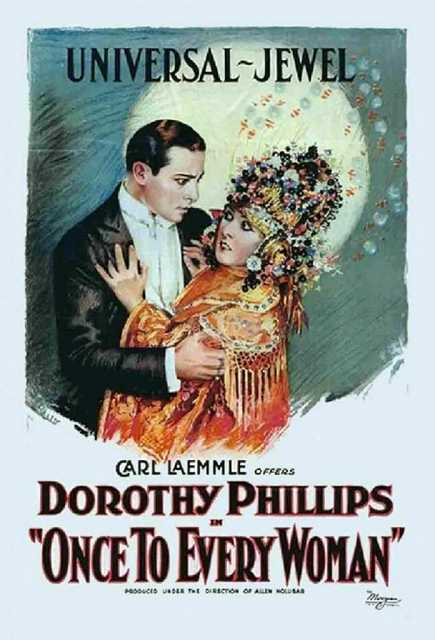 .
.
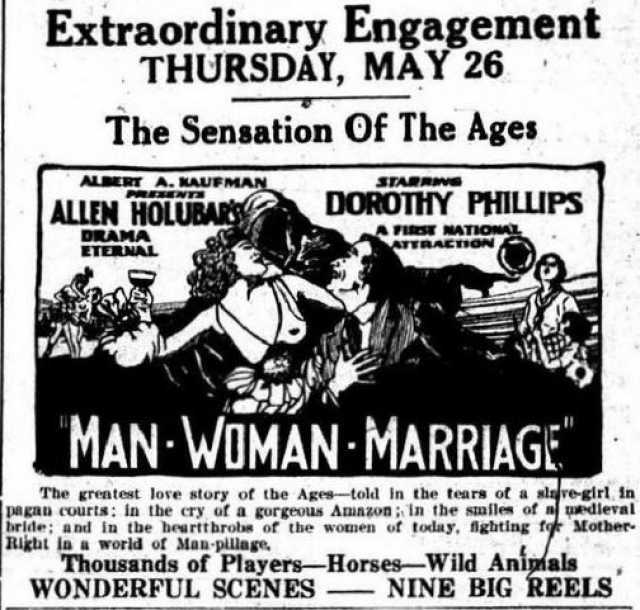 .
.
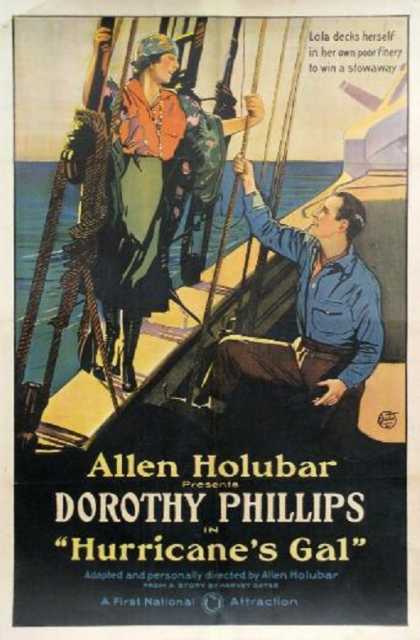 .
.
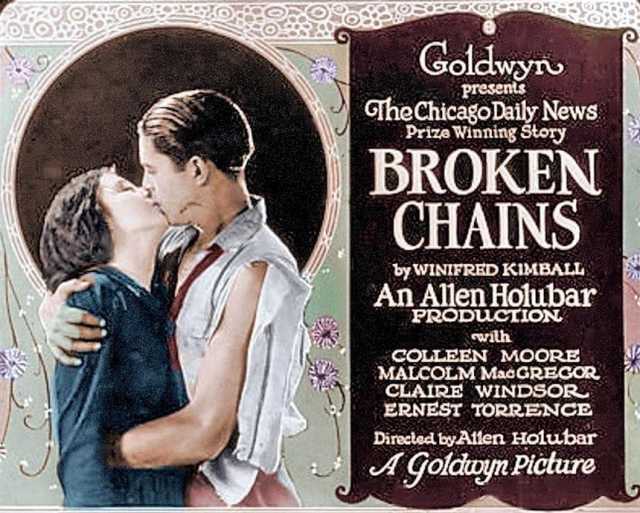 .
.
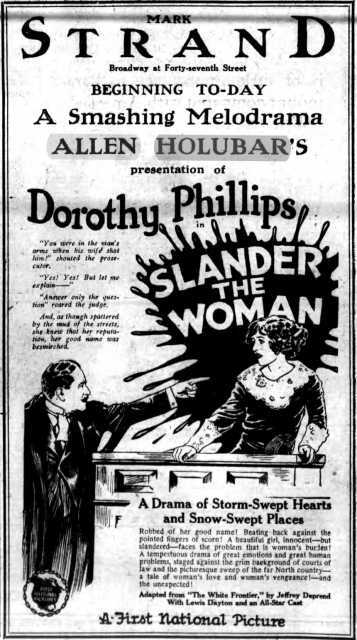 .
.
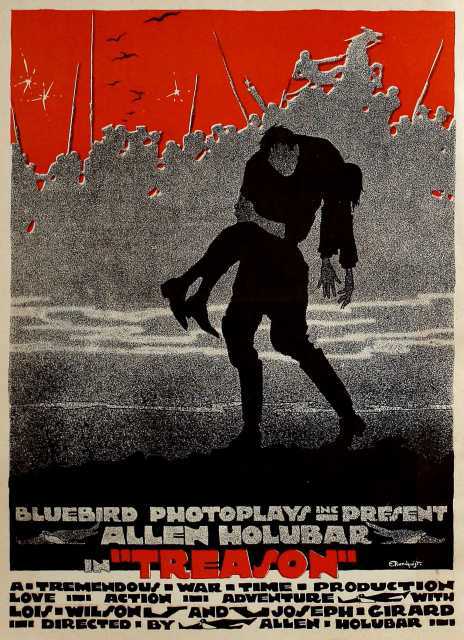 .
.
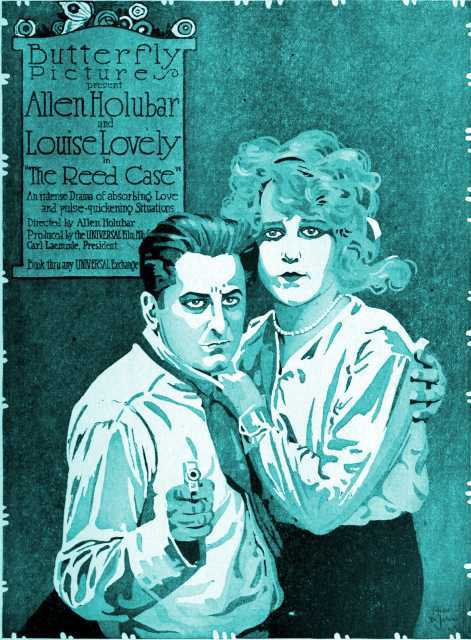 .
.
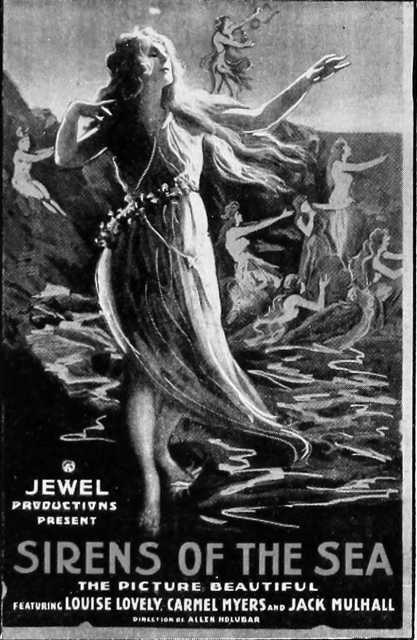 .
.
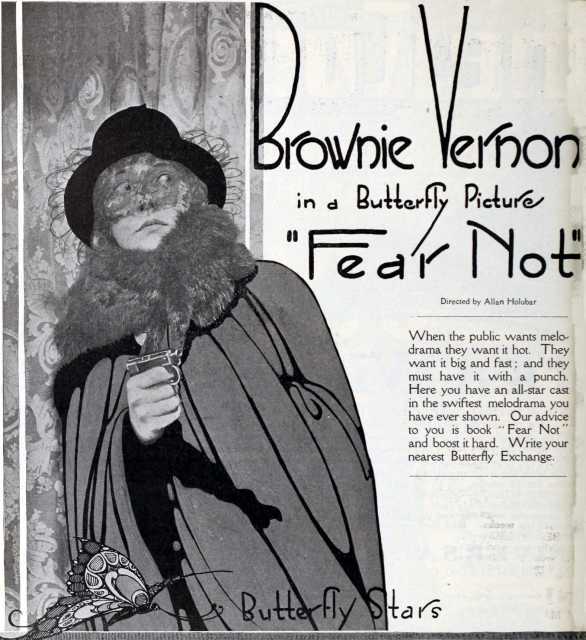 .
.
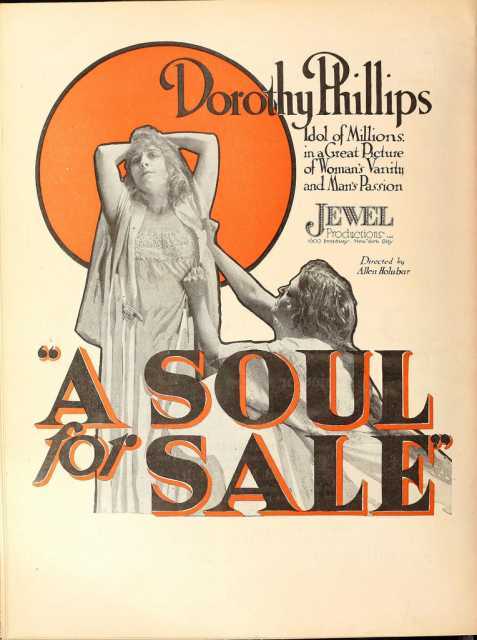 .
.
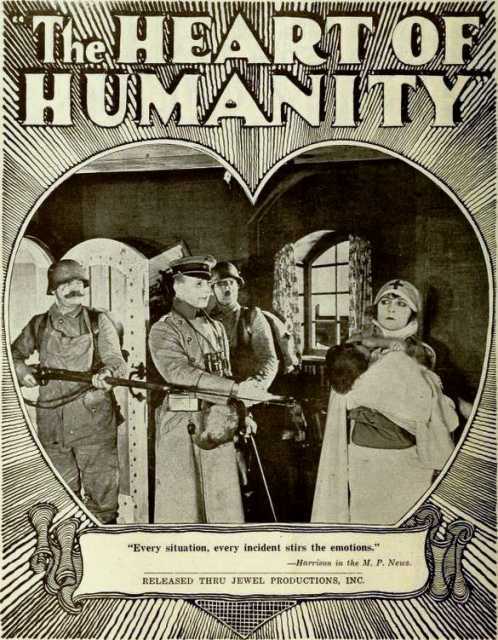 .
.
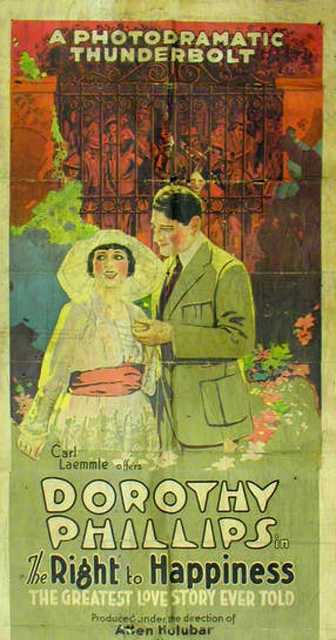 .
.
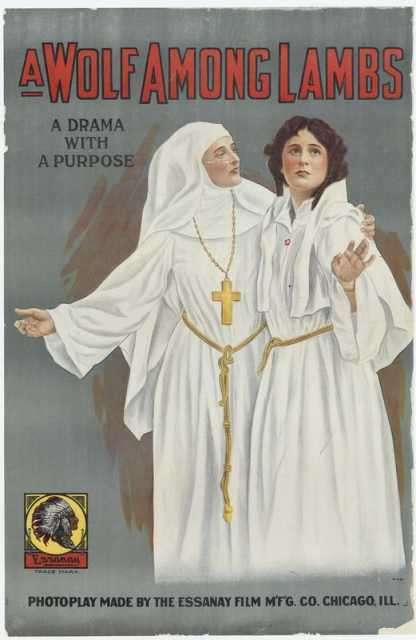 .
.
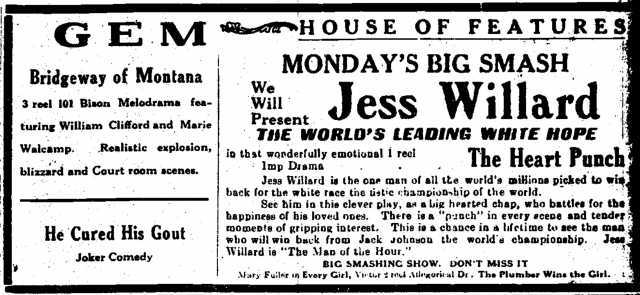 .
.
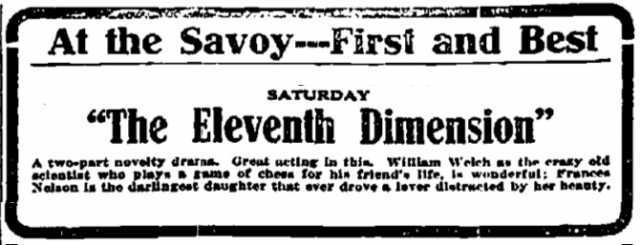
Filmographie Allen Holubar nach Kategorien
Produzent Regie Drehbuch Story DarstellerDisclaimer
Die obenstehenden Informationen erheben keinen Anspruch auf Vollständigkeit, sondern geben den Informationsstand unserer Datenbanken zum Zeitpunkt der letzten Aktualisierung an. Alle Angaben sind nach bestem Wissen und Gewissen recherchiert, Rechtsansprüche aus falschen oder fehlenden Angaben werden ausdrücklich abgelehnt.Auf Grund der aktuellen Rechtssprechung in einigen Ländern kann derjenige haftbar gemacht werden, der auf Adressen verweist, die möglicherweise einen strafbaren Inhalt verbreiten oder auf strafbare Inhalte und Seiten weiterverweisen, es sei denn, er schliesst eindeutig eine solche Haftung aus. Unsere angeführten Links sind nach bestem Wissen und Gewissen recherchiert, dennoch können wir in keiner Weise für die Inhalte der von uns aufgeführten Links und Webseiten irgendwelche Haftung übernehmen. Wir geben diese Erklärung sinngemäss für alle Länder und alle Sprachen ab.
Soweit nicht anderweitig gekennzeichnet sind Fremdzitate im Rahmen des üblichen Zitatenrechts mit Kennzeichnung der Quellen aufgenommen. Das Copyright dieser Zitate liegt bei den Autoren. - Allen Holubar - KinoTV
